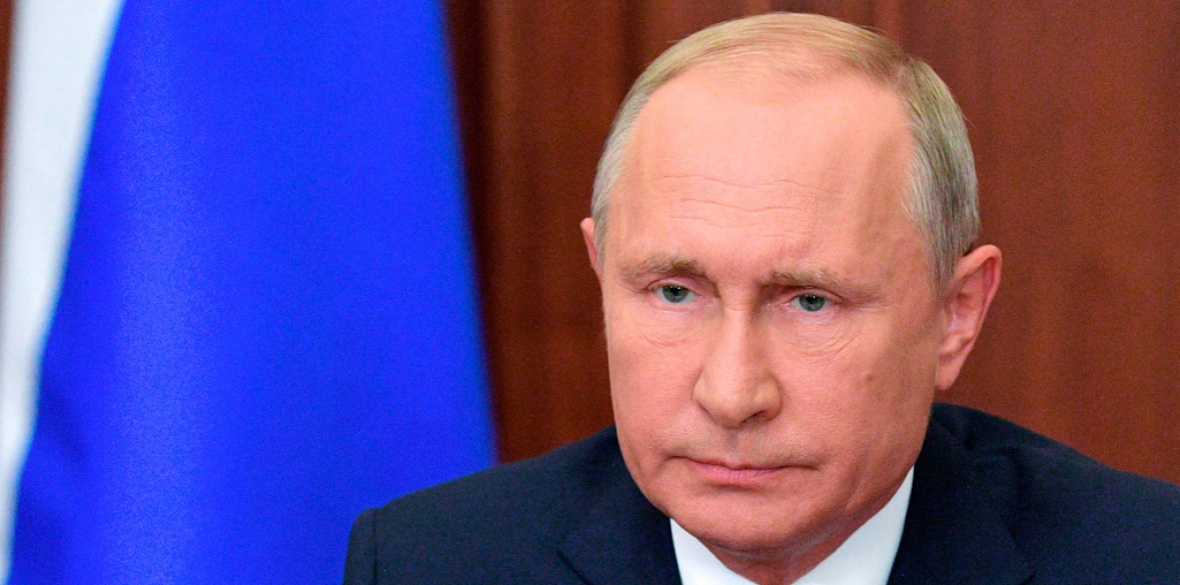This is the last article you can read this month
You can read more article this month
You can read more articles this month
Sorry your limit is up for this month
Reset on:
Please help support the Morning Star by subscribing here
PRESIDENT Vladimir Putin’s decision to give ground on his government’s plan to increase the age at which Russians can access their state pension confirms the value of mass protest.
The Russian leader has previously stood aside from Prime Minister Dmitri Medvedev’s unpopular so-called “reform” to increase, in annual instalments, women’s retirement age from 55 to 63 and men’s from 60 to 65, waiting to assess the fallout.
But no-one can believe that close ally Medvedev would have floated this scheme without checking first with the president or, for that matter, announcing it on the eve of the World Cup football finals taking place in cities across Russia.
If the government had hoped to slip this mimicry of European Union anti-working class state policies in below the radar, it failed because of the scale of public dissent, largely organised by the Communist Party (CPRF).
Even now, Putin’s determination to stick with the 65 target for men, while cutting the increase for women to 60, may not prove enough to spike discontent.
While other political forces, including the Left Front and the unnamed bloc known simply as supporters of Alexei Navalny, have organised protests, the CPRF was first out of the blocks, demanding a nationwide referendum and setting in train a petition that gained millions of signatures together with protest rallies in over 150 towns and cities.
While the Communists have provided the only consistent opposition to Putin and his sponsor Boris Yeltsin since the restoration of capitalism in 1991, the mainstream media in Britain and elsewhere designate Navalny “opposition leader,” despite him having no party organisation or parliamentary representation.
Communist Party leader Gennady Zyuganov’s reference to opinion polls showing that the governing parties’ support had plummeted 12 per cent in a few weeks, while the CPRF gained 5 per cent, illustrated the scale of public anger.
On the rare occasions Britain’s media refers to the CPRF it is usually to slander it, falsely, as being in the Kremlin’s pocket or to deride it as composed of an older generation nostalgic for Soviet times.
Those old enough to remember that era before perestroika may well look back fondly to the days when a state pension was sufficient to ensure a comfortable retirement.
But younger Russians have mobilised too, recognising that poverty awaits them also after retirement unless they organise.
President Putin’s plea for understanding and his warning that Russia's pension system could “crack and eventually collapse” echoes government apologists for decades-long attacks on pensions’ value and the age at which they are paid in Britain.
There is no iron law of economics that makes these policies inevitable.
They are deliberate choices based on neoliberal politics prioritising state expenditure reductions and encouragement of personal provision, even if the possibility of this is curtailed by state policies holding down salaries.
The plight of Women Against State Pension Inequality (WASPI) — around half of million of whom will lose out on their entitlements because of earlier bipartisan parliamentary backing for two separate increases in the pensions payment age — is one of the great injustices of our age.
Trade unionists often state correctly that pensions are simply deferred wages, which encapsulates the reality that these workers’ incomes are being stolen.
Labour under Jeremy Corbyn recognises the scale of this crime against women deprived of their pension rights simply because of when they were born.
Righteous resistance has caused the Russian president to take an uncharacteristic step backwards. We can and must force a similar retreat in Britain.












